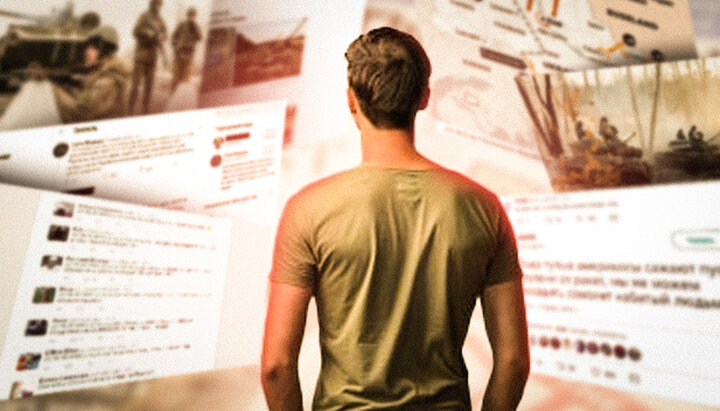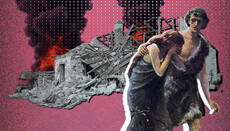War: To be or not to be?

The specter of war has been in the air for a long time and is quite palpable. But should a Christian fear the possibility of war? And what can we do to prevent it?
The most frequently asked question for the past two weeks is “will there be a war?” While a couple of weeks ago, the word “war” meant the likely invasion of Russia into the territory of Ukraine, now the vector has changed, and we are talking about a world war in general. In this war, Ukraine is viewed as a catalyst at best and as a testing ground at worst. In any case, however, innocent people will be affected, which is unacceptable in principle.
Indeed, if you flip through the news feed, it seems that the threat of world war is inevitable. At the same time, most experts agree that this war will definitely end in defeat – defeat for everyone. There will be no winners in it, because there will be practically no survivors. But despite this fact, the world's political elite is still striving to implement an aggressive scenario, moving from sanctions rattling to the use of nuclear warheads. One gets the feeling that modern man is a creature without memory, who simply does not remember how many millions of lives were claimed by the Second World War. It was a "war of engines", in which weapons of mass destruction were practically not used (except for Hiroshima). Today's war is a confrontation between ballistic missiles and nuclear power. Well, why "confrontation"? If it starts, it will be rather a "parallel extermination ..."
In this regard, many recall the so-called "Caribbean Crisis" and note that today the situation is more complicated. Then, we recall, the USSR decided to place its missiles in close proximity to the United States – in Cuba. And it was only by a miracle that a nuclear war was avoided or, to be more precise, by the Providence of God.
War and Christianity
For some reason, we often forget about God in all such situations. It seems to us that issues of war and peace are resolved in New York, Washington, Basel, Munich or Moscow. In fact, they are resolved in Heaven, in the Heavenly Office, rather than in the NATO or the European Union HQs. Likewise, we scour for an answer to the question “will there be a war” on Google or Facebook, but not where it can only be – in the Holy Scriptures.
It turns out that war is possible only if God allows it. The Bible clearly tells us that God allows it for the sins of man. He lets it rather than commits it, according to His good will. Thus, in the Apostle Paul we read: “None is righteous, no, not one; no one understands; no one seeks for God.” “All have turned aside; together they have become worthless; no one does good, not even one.” “Their throat is an open grave; they use their tongues to deceive.” “The venom of asps is under their lips.” “Their mouth is full of curses and bitterness. “Their feet are swift to shed blood; in their paths are ruin and misery, and the way of peace they have not known.” “There is no fear of God before their eyes.” (Rom. 3:10-18). But this does not mean that the Christian takes the proximity (in certain cases) of war as inevitable. On the contrary, a believer always prays for peace.
It seems to us the issues of war and peace are resolved in New York, Washington, Basel, Munich or Moscow. In fact, they are resolved in Heaven.
In general, Christianity is intrinsically a religion of peace, while the Church is a place of Love in which there is no war. For example, even Clement of Alexandria (who lived in the third century) contrasts the pagan "militant" peoples with the "peaceful tribe of Christians." Clement's contemporary Origen wrote: "We do not take up arms against any people, we do not learn the art of war, for through Jesus Christ we have become children of peace." In the fourth century, Lactantius writes that “there should be no exception in the commandment of God that it is always a sin to kill a person. Christians are not allowed to carry weapons, for their only weapon is the truth.”
In the acts of the First Ecumenical Council (325) we read: “By grace, those who were called to confession of faith and showed the first impulse of zeal, put off their military belts, but then, like dogs, returned to their vomit ... such must fall down before the church for 10 years, asking for forgiveness, after three years of listening to the Scripture in the porch.” In turn, St. Basil the Great believed that one should be banned from the Holy Communion for three years for participation in the war, even if this war was defensive.
I say this in order to make it clear that the attitude of the Church towards war has always been negative. The reason for this is the very nature of our Creator. “God is Love”, says the holy Apostle John, which means He cannot initiate war. War is always a human initiative. Therefore, it is in the power of man to halt it. And we are talking not only about the "makers of history", but also about "mere mortals". About you and me. We, too, can influence world events. And what is most interesting – we do influence them. How? Let's remember Nineveh.
War and repentance
According to the Scripture, the prophet Jonah received a command from God to go to Nineveh city with a sermon of repentance and a prediction of imminent death if its inhabitants do not repent of their sins and atrocities. The prophet decided not to fulfill the command of God (sometimes this happens), and went to Tarshish, but through a storm and the belly of a whale, the Lord nevertheless compelled him to fulfill his mission.
Jonah went to Nineveh, where he began to walk along the streets and preach that the city would be destroyed in 40 days. This sermon astounded the people of Nineveh and their king. The inhabitants of the city repented of their sins, dressed in rags and declared a 40-day fast. Seeing their sincere desire to improve, the Lord had mercy on the city and did not bring on it the disasters He had foretold through the prophet Jonah. In turn, the prophet was grieved that the Divine judgment had not taken place over Nineveh, and for some time even grieved about it in the face of God. What did he say to God?
“God is Love,” says the holy Apostle John, which means that He cannot initiate war. War is always a human initiative. Therefore, it is in the power of man to halt it.
"Isn’t this what I said, LORD, when I was still at home? That is what I tried to forestall by fleeing to Tarshish. I knew that you are a gracious and compassionate God, slow to anger and abounding in love, a God who relents from sending calamity.” (Jonah 4:2). These are key words throughout the book of Jonah. Our God is gracious and compassionate God, slow to anger and abounding in love. He doesn't want war. So, we can prevent a catastrophe through our repentance, through changing our lives. By the way, Metropolitan Hilarion of Donetsk also said about this: “Today our prayerful standing before the Face of God is extremely necessary! We are not able to change reality, we cannot do it. But the Almighty Lord God can! Our Creator and Maker, unceasingly caring for His people, can change everything in the twinkling of an eye.”
War for hearts and minds
On the other hand, the war is already on. Virtual. The amount of militaristic information that hits the screens of TVs and gadgets today is simply daunting. So is the flow of falsehood. How many times in the past month was Russia supposed to attack Ukraine "with 100% probability"? How many times have we heard that the enemy army is advancing towards Kyiv? Countless! It is also impossible to count the amount of fake information regarding the situation in Donbas.
Perhaps the experts are right when they say that at the moment we are witnessing the outbreak of the third world war. Albeit this is not a nuclear (as expected), but informational war; not for territory, but for minds; not a war of warheads, but of keyboards – it is no less destructive. One single keyboard can take hundreds of thousands of real lives, almost like just one bomb in Hiroshima.
Pay attention to how skillfully hatred is entering the minds of people with the help of technology. It is enough to create an image of the enemy and with the help of simple manipulations make a person kill him. First in your heart. For example, depriving him of his personality and turning him into a soulless subject. With that done, physical destruction is just a step away.
Perhaps the experts are right when they say that at the moment we are witnessing the outbreak of the third world war. Albeit it is not nuclear (as expected), but informational; not for territory, but for minds.
For example, in Rwanda in 1994, in order to slaughter 1 million people (!!!) in a few months, they only needed to be called "inyenzi" meaning cockroaches. Cockroaches are easier to kill than people. So are "Colorados" and "Ukies". We give our "enemies" various ethnonyms – "Moskal", "Banderite", "jingoist", "sovok" (a person with ingrained mentality of the Soviet Union – Trans.), "zapadenets" (a resident of the western Ukraine – Trans.) ... and all just so as not to look into the eyes and not to see a HUMAN in another person. Who is just like me.
In the issue of depersonalization, digital technologies are an indispensable tool today. More specifically, these are social media. How much hatred and aggression is there, how much humiliation and evil! It seems that Facebook, Twitter, Telegram and so on are the territory where a real war is already being waged. Though this war develops only in the minds, it is no less dangerous. In addition, you happen to meet your "sworn" Fb "enemy" in real life and you are amazed. You see the most pleasant person, a good family man, a kind and sympathetic colleague. Could it be like that? Certainly. The reason is that he/she just hid behind the monitor screen.
Of course, it's not the monitor's fault, because it's an instrument. Who it to blame then? Rothschild-Rockefeller-Gates-Bezos? No, they are also tools, although they think otherwise about it. So who is it? Every person who takes the bait cast by Satan.
Anger towards the one who is labeled as enemy, evil wishes to those who have a view of the world different from ours come exactly from Satan. But only we can decide whether to take this bait or not. The one who takes it enters the war, because it is so simple and there is no responsibility. Here it is often not hatred, but selfishness that comes first. The desire to assert oneself and display so to speak "hidden potential". Perhaps that is why the biggest "patriots" in Ukraine are those who live abroad or those who live in the country and shamelessly plunder their “motherland”. It's inappropriate for a Christian to behave like that.
In the situation that has developed in the world today, all hope is on us, the “salt of the earth”. On our love, sanity and composure. Can we resist evil? Yes, we can. Having the faith in a good God. Having the faith that God “desires all men to be saved and to come to the knowledge of the truth” (1 Tim. 2:4).
* * *
Therefore, no matter how strange it may sound, but whether or not there will be a war depends on us. We define its beginning, and we designate its end. The battlefield is our heart and soul. The enemy is Satan. Our protection is prayer and fasting. Our weapon is repentance. Remember the apostle Paul’s words?
“Therefore take up the whole armor of God that you may be able to withstand in the evil day, and having done all, to stand firm. Stand therefore, having fastened on the belt of truth, and having put on the breastplate of righteousness, and, as shoes for your feet, having put on the readiness given by the gospel of peace. In all circumstances take up the shield of faith, with which you can extinguish all the flaming darts of the evil one; and take the helmet of salvation, and the sword of the Spirit, which is the word of God” (Eph. 6:14-17).
Armed like that, we must win. After all, Christ Himself will be with us, and the depth of our repentance, in the end, affects the fate of the entire world. As the Lent is approaching, it is very timely to remember this.











